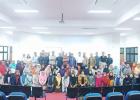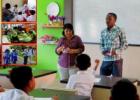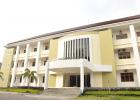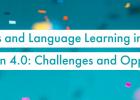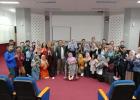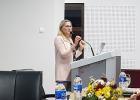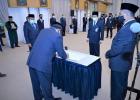 Bahasa Indonesia
Bahasa Indonesia English
English
You are here
Graduate prospects
Primary tabs
Graduates of the Applied Linguistics Study Program are capable of:
- competing in the era of globalization and trade liberalization, especially in relation to the science of language education, literary education, and translation,
- being reliable and innovative scientists, especially in relation to the educational system, both at the school or college level,
- having extensive insights, especially in relation to the linguistic, literature and translation, and educational problems,
- improving and deepening the subject matter of the field involved in language education, literary education, and translation,
- having knowledge related to the relationship of fields of study summarized in applied linguistic courses and other disciplines,
- having the capability to conduct research and write scientific reports and the implementation in the teaching and learning process or to support the academic abilities, especially in relation to the language education, literary education, and translation,
- having the capability to increase the independence and mutual dependence in the development of science, especially in relation to linguistics and its application; and
- improving skills in managing the teaching and learning process, including the mastery of strategies and techniques of education and evaluation of the teaching and learning outcomes in the fields of language education, literary education, and translation.
The job prospects of applied Linguistic Study Program graduates include teaching a language, both at the level of junior high school, high school, and as a college lecturer. Applied Linguistics study graduates can also work for non-school Language Education Institutions (courses), both foreign language courses and Indonesian language courses for foreign speakers. In addition, graduates can also become language researchers. In addition to that, graduates can also work as professional translators.
PERPUSTAKAAN
CONTACT US
FAKULTAS BAHASA DAN SENI
(FACULY OF LANGUAGES AND ARTS)
UNIVERSITAS NEGERI YOGYAKARTA
Address: Jl. Colombo No.1, Karang Malang, Caturtunggal, Kec. Depok, Kabupaten Sleman, Daerah Istimewa Yogyakarta 55281
Phone: (0274) 550843
Website : lt.pps.uny.ac.id
Email: kaprodi.lt.s2.@uny.ac.id,
Copyright © 2024,

